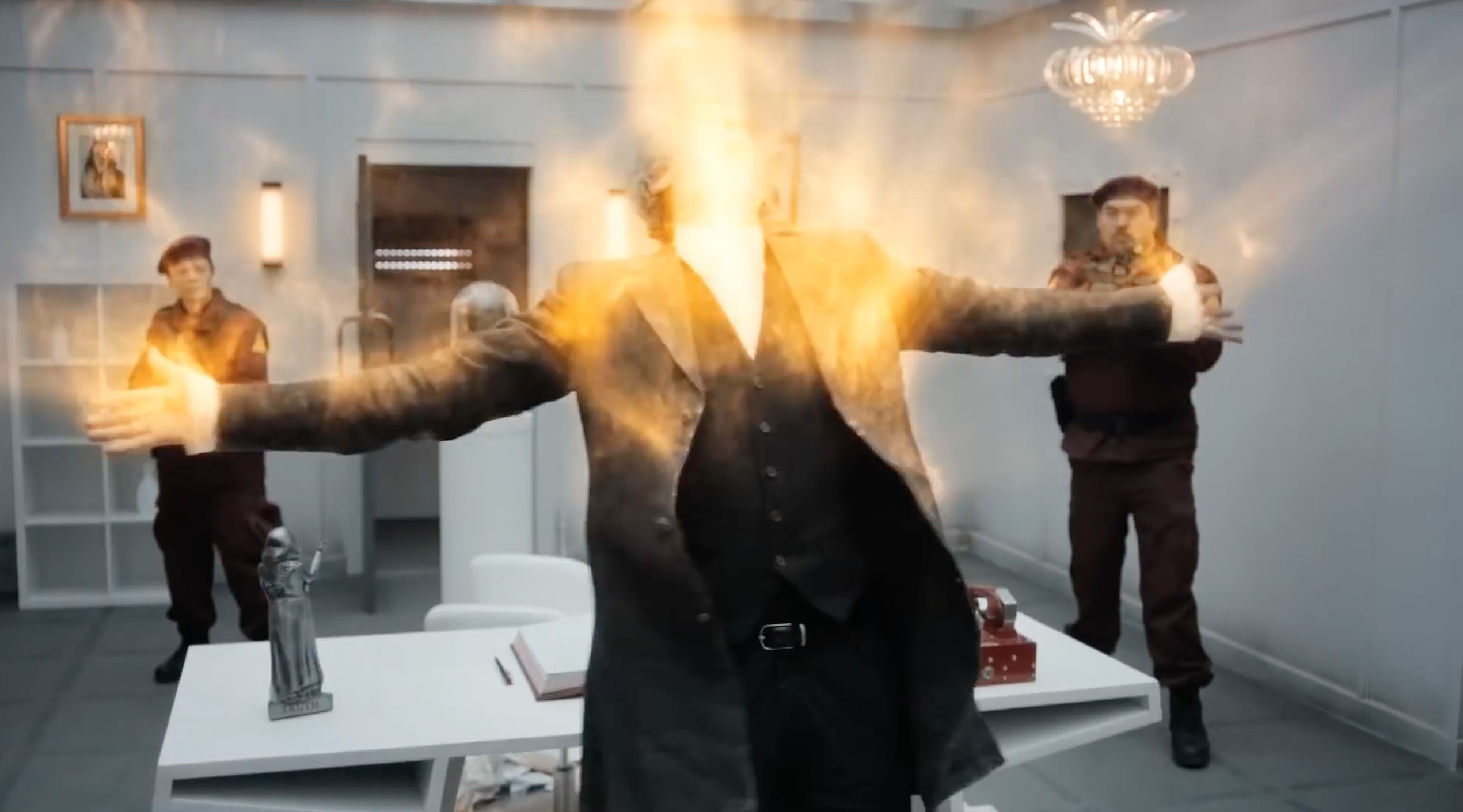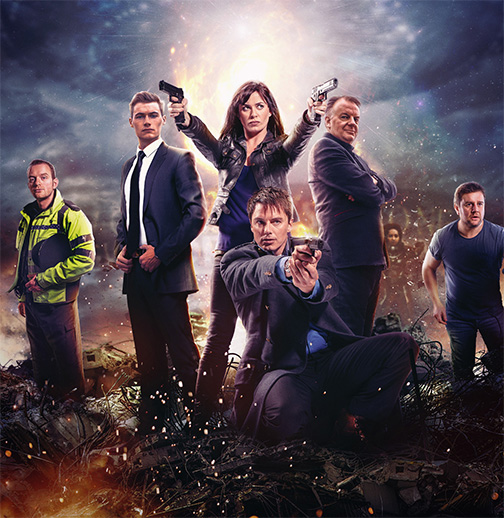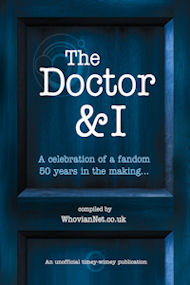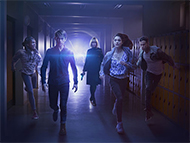Exclusive Interview: Peter Harness

“It features the return of an old friend from the Doctor’s past…”
The Doctor and Clara embark on one of their most dangerous adventures yet in this Saturday’s episode, Kill The Moon, and we were thrilled to get the chance to speak to the man behind it, Peter Harness!
Peter spoke exclusively to WhovianNet about his first foray into the Doctor Who universe, which will see our heroes get caught up in a suicide mission to the Moon. As he told us, there are plenty of surprises in store…
Q. Hi there, Peter! So, when did you first realise that you wanted to become a writer?
A. I don’t know, really. Probably before I knew that there was such a thing as being a writer, certainly long before I realised you could actually do that as a job. For as long as I can remember I’ve been writing stories and plays, and episodes of Doctor Who. But I guess I must have made some kind of decision to try and make a go of it, professionally speaking, sometime in my early twenties. For a while, I’d thought that I’d be an actor instead. I did a lot of acting at university and before, but when the time came, I just didn’t really bother pursuing that, and I guess that’s when I realised that my heart must be in writing.Q. And are there any writers that have particularly inspired you, both in life and in your career?
A. Yes, lots of them. Probably too many to mention. Dennis Potter was one of my big inspirations, and remains so. I think I’ve always wanted to write for television, above and beyond anything else, and he was really the person who proved that you could do that and still be taken reasonably seriously. Terrance Dicks, of course. Like he did a lot of other people, he gave me a real love of books and of reading, which is one of the things that most writers need. Susanna Clarke, who wrote my favourite book, Jonathan Strange and Mr Norrell, and who is, in addition to that, a wonderful person who I’ve been very privileged to work with and gotten to know. And Russell T Davies and Steven Moffat, without whose genius I wouldn’t be talking to you. But beyond that, if I started listing all of the writers that I love and who’ve inspired me, we’d be here all night!Q. How and when did your involvement with the new series of Doctor Who come about?
A. I’ve been desperate to write for Doctor Who for years, but I’ve always been a bit shy about putting myself forward. However, I guess I’ve told so many people and gone on about it so much, that eventually the producers got to know and asked me to come and pitch some ideas. I was enormously nervous when I went to meet them, and had about five or six different ideas, none of which they particularly went for. And Kill The Moon, which had just suddenly popped into my head on the plane back to England the night before. Thankfully, they liked it, and I spent a little bit of time developing the idea for Matt Smith’s Doctor before I had to go and write something else. But they were still keen on the idea when I finally surfaced again, a couple of years later, so I got to write it for Peter Capaldi instead.Q. So you were already a huge fan of the series?
A. I’ve always been a fan of Doctor Who, for as long as I can remember. In fact, I think some of my first memories are of watching Doctor Who. Davros’s big blue bulb lighting up in “Destiny of the Daleks”, and Julian Glover ripping his rubber face off in “City of Death”. It’s had a huge, pretty much immeasurable effect on me. I loved it when I was three years old and I’ve never stopped.Q. Without giving too much away, what can you tell us about your own episode, Kill The Moon?
A. I’ll tell you that it’s quite scary. At least, I hope so. And that I think it’ll polarise people to a degree. And that it features the return of an old friend from the Doctor’s past. And that there’s a throwback to “Blink”. If you can spot it.Q. Each episode of Doctor Who is a blank slate in terms of its setting, themes and characters. As a writer, is this a prospect that is particularly exciting or daunting?
A. It’s very liberating. It means that it’s very easy to come up with potential ideas for Doctor Who stories, because basically any story or character can be given a Doctor Who twist, and is usually all the better for it. The most worrying thing about writing Doctor Who, first time round at least, is the anxiety about whether you can actually do it. Better writers than me have tried, and not managed to get their head around it. So I was very, very relieved that I found that I could actually do it, that I could write a Doctor Who story, with all the Who-ness, but which still felt like me, too. I was expecting them to turn round at any moment and tell me I wasn’t up to the job. I still can’t really believe that it’s actually been made. Maybe it hasn’t. Maybe they’ll just show the test-card instead.Q. Are there any skills and experiences, both professional and personal, that you found yourself drawing upon whilst writing this episode?
A. God, that’s a difficult question! I suppose there were loads. But I’ve never been on the Moon or met any giant spider creatures, so I guess I had to imagine that bit.Q. What was it like to write for a Doctor that had yet to appear properly on screen?
A. I didn’t start writing it entirely blind, because they’d just started shooting when I began writing my script. So as I was writing, I was seeing the odd scene from “Deep Breath”, and maybe “Listen”; and really, Peter Capaldi’s Doctor was already beginning to take shape. So I wrote with his take on it, and his voice, very much in mind; and as I went through the various drafts of my script, Peter’s Doctor was busily crystallising and coming into being down in Cardiff, and I was very much writing alongside of that.Q. What would you say are the main factors that have contributed to Doctor Who’s ongoing success?
A. I think the incredible openness of the central conceit – that you can go anywhere in time and space, and tell a totally different genre of story every single week. The character of the Doctor himself, his benevolence, his twelve-sided uniqueness as a personality. The frequent changes of personnel both on and off screen, and the commitment and love that all of the people who have worked on it over the years have always brought to it. All of these things keep it fresh and alive and new.Q. Finally, have you got any upcoming projects that you can tell us about?
A. Yes. My next thing up is a seven-part series for BBC One, based on Susanna Clarke’s Jonathan Strange and Mr Norrell. It’s a period drama, set in the 1800s, with lots of fantastic special effects, about the return of magic to England, and about the two magicians who bring it back. I’ve written the scripts, and the fantastic Toby Haynes (who directed The Pandorica Opens and the following run of stories) has directed it. And he’s done a magnificent, towering, inspired job. It’s been a huge project and a gargantuan effort to bring it to the screen, but it’s nearly done, and should, with any luck, be on some time in the new year. And I hope people will enjoy it as much as I’ve enjoyed writing it.
New series, new Doctor, new adventures. Click here for all the latest on Series 8!






 (4.92 out of 5)
(4.92 out of 5)
hi there, peter when did you realize that you had a thing for writing?